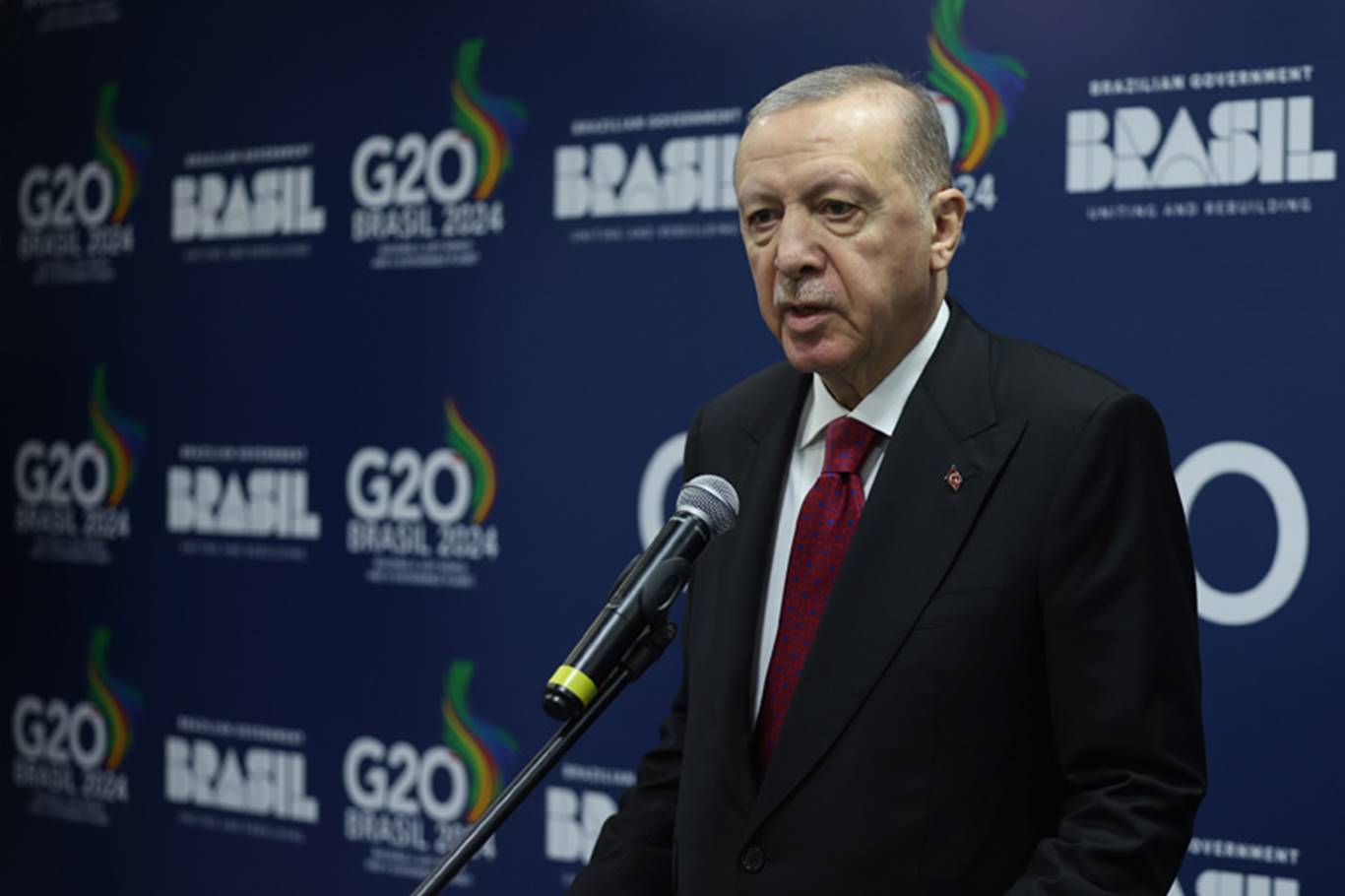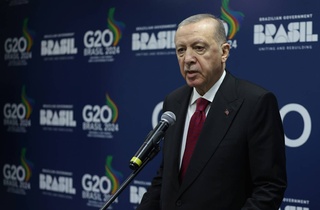Speaking at a press conference during the G20 summit, Erdogan stated: "We cannot proclaim that there is a positive aspect to a war in which nuclear weapons are utilized ... NATO officials should deliberate on this step taken by Russia and review it."
The updated Russian doctrine expands the conditions under which nuclear weapons could be used, allowing for their deployment in response to a conventional missile attack if backed by a nuclear-armed state. This policy shift follows the U.S. decision to allow Ukraine to use long-range missiles to target deep into Russian territory.
Erdogan’s remarks reflect growing international concerns about escalating tensions between nuclear powers amid Russia's ongoing conflict with Ukraine.
Erdogan also reiterated Turkey’s commitment to fostering peace between Russia and Ukraine, expressing hope for an end to the conflict. "I hope we can quickly achieve a lasting cease-fire between Ukraine and Russia, securing the peace the world is waiting for," he said.
The conflict, which marks 1,000 days since Russia launched its so-called "special military operation," continues to strain international relations and heighten fears of broader escalation.
Erdogan’s call highlights the need for NATO to address the implications of Russia’s revised nuclear strategy. With the doctrine allowing for nuclear responses to conventional threats, the Turkish president stressed the importance of proactive discussions within the alliance to mitigate potential risks.
Erdogan’s statements underscore Türkiye’s active engagement in seeking diplomatic resolutions and addressing the broader geopolitical consequences of the war. (ILKHA)




 Güncel
Güncel
 Dünya
Dünya
 Güncel
Güncel
 Dünya
Dünya
 Dünya
Dünya
 Güncel
Güncel
 Güncel
Güncel
 Dünya
Dünya
 Güncel
Güncel
 Güncel
Güncel





